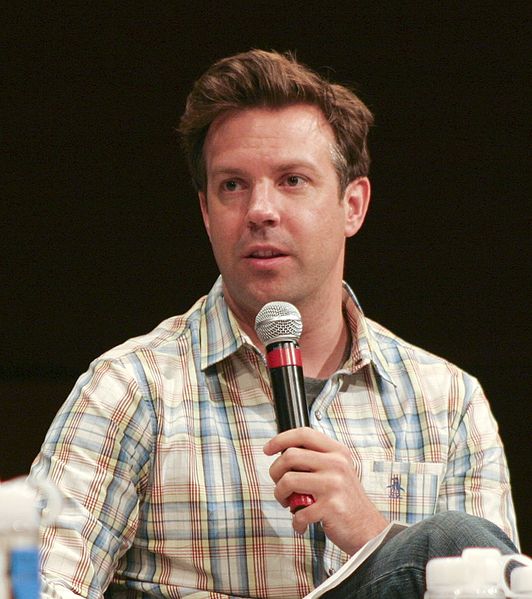Why Ted Lasso’s depiction of mental health is more than representation

Jason S. Eric Stangel / Wiki Commons
“Ted Lasso” is a comedy-drama sports show about an American coach. Jason Sudeikis stars as titular character Ted Lasso.
This article may contain spoilers for season two of “Ted Lasso.”
Season 2 of the feel-good AppleTV hit “Ted Lasso” gets serious. In the first season, viewers saw the sunny Ted Lasso — an American football coach played by Jason Sudeikis — manage a premier-league soccer team and win over his doubters with genuineness and biscuits. It had its moments of sadness and real depth, but its appeal came from its lightness in a time that is anything but. In the sophomore season, we begin to see the not-so-cheery man behind the mustachioed smile; we begin to see Ted.
The newest addition to the cast is Dr. Sharon Fieldstone, a sports psychologist played by Sarah Niles. Fieldstone is brought in to help Danny Rojas (Cristo Fernández) with his playing performance after he inadvertently killed the mascot with a wayward penalty kick. The other players find themselves utilizing her impressive abilities as a therapist. Lasso has his reservations about the “Doc,” and makes it apparent in his own way, as she remains unamused and unwooed by the sugary Lasso.
Eventually, Lasso is forced to ask for help after a particularly bad panic attack, of which we got a glimpse last season. As the season goes on, we find out the root of his anxiety is trauma from his father’s suicide. The show’s portrayal of trauma, panic attacks and treatment is not only accurate but can help identify signs of someone struggling and can potentially quell doubts viewers may have about the practice of therapy.
Jessi Gold, a psychiatrist and assistant professor in the psychiatry department at Washington University’s School of Medicine in St. Louis, Missouri, told Inverse that Lasso’s hesitancy towards therapy allows the show to address the fears someone watching may have.
One of Lasso’s main hangups, and a common one according to Gold, is that therapists are paid to listen to you, whereas friends care about you. Dr. Sharon’s response to this is to ask him if he cares about his players even though he is paid to coach them. It shows you the process of therapy. You’re in the room with Lasso. Not only that, Gold continues, “They’re also showing you that therapy works.”
She praises the show with the accuracy of panic attacks and their role in trauma. The tingling in the hands and the debilitating effects does cause someone to be unable to function, or in Lasso’s case, coach.
The revelation of the season is that the upbeat energy of Lasso is a facade; a coping mechanism to deal, or not deal, with his past trauma. Lasso’s trauma manifests itself in panic attacks.
“The body remembers trauma, and when that trauma isn’t addressed, it’s common for it to show up physically,” Gold said.
I have seen the utility of the show firshand. While traveling with a friend this summer, I had a panic attack. We were on a tour bus, driving on winding roads, when I found myself struggling to breathe and my hands starting to tingle and cramp. In my altered state, I was only able to sputter something about my hands hurting. My travel companion was able to calm me. Later he said he knew it was a panic attack.
“Your hands were like Ted’s,” he said.
















